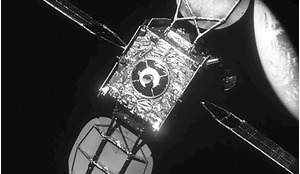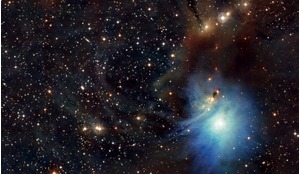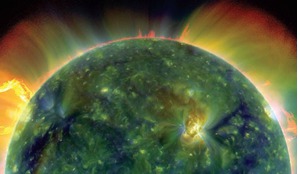The popular belief that we share the universe with other forms of life might once have been ascribed to the influence of fiction. Today, most of us are now aware of the torrent of exoplanet discoveries that for the last two decades have been the celebrity achievements of astronomical research. The Universe is replete with territory that might both spawn and support life. If our planet is the only one in the Universe with lifeforms able to understand science and develop technology, then Earth truly is a miracle. But if there are others then the flush of recent planetary discoveries and advances in technology make a discovery in the near future more likely than ever before.
Aliens have been a common fixture in science fiction since the Second World War when the development of modern rocketry encouraged the idea that we might eventually send humans to other worlds.
Films and television were quick to depict a universe stuffed with clever and sophisticated, although frequently unattractive, creatures. After all, if we could manage space travel, why wouldn’t highly advanced extraterrestrials, light-years away, be doing the same?
Although cinematic sentiments are often disappointingly hostile - aliens usually coming to Earth with no more cogent intent than to level our cities - there seems to be a widespread presumption that many of the trillion or so planets that populate the Milky Way are carpeted with life. And surveys routinely show that the majority of the public believes that we share the cosmos with other life – even intelligent life.
Read more about the search for extra-terrestrial life in the full version of the article, available now to our subscribers.














